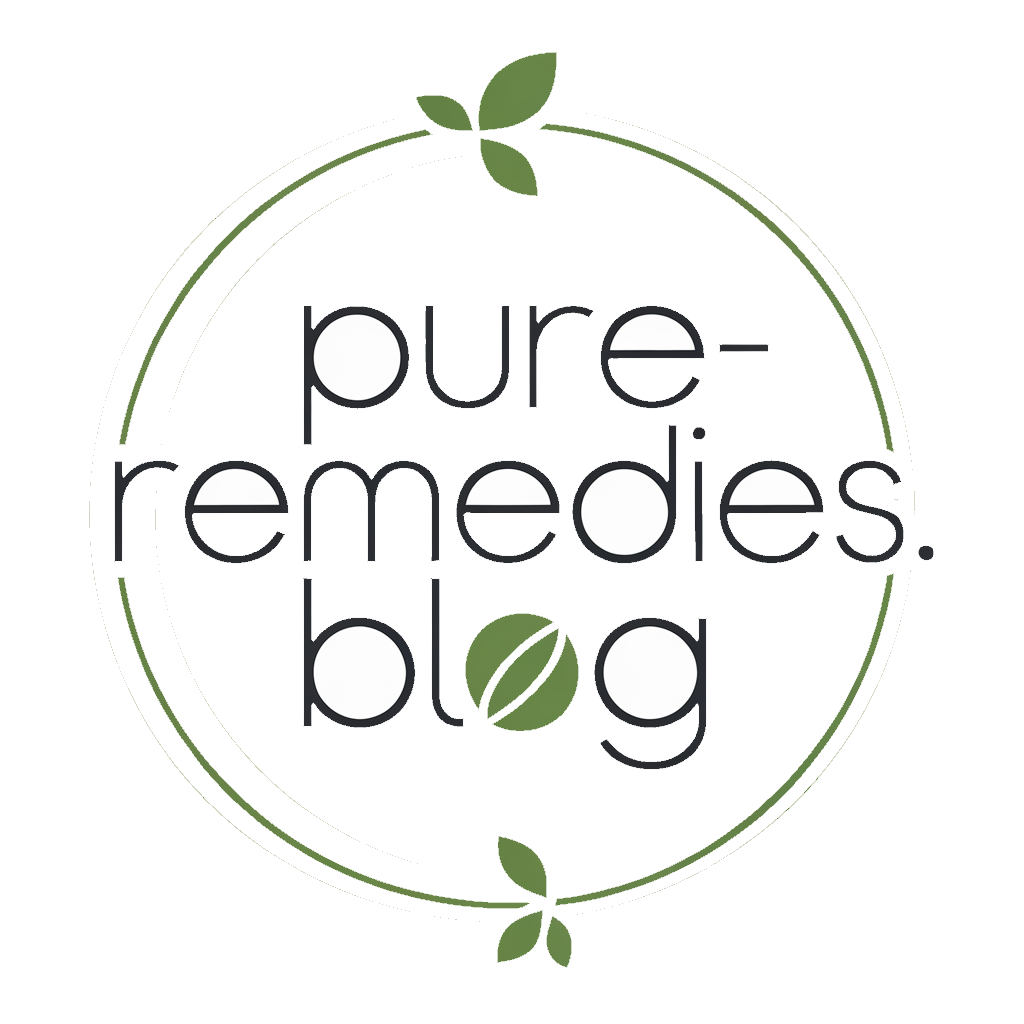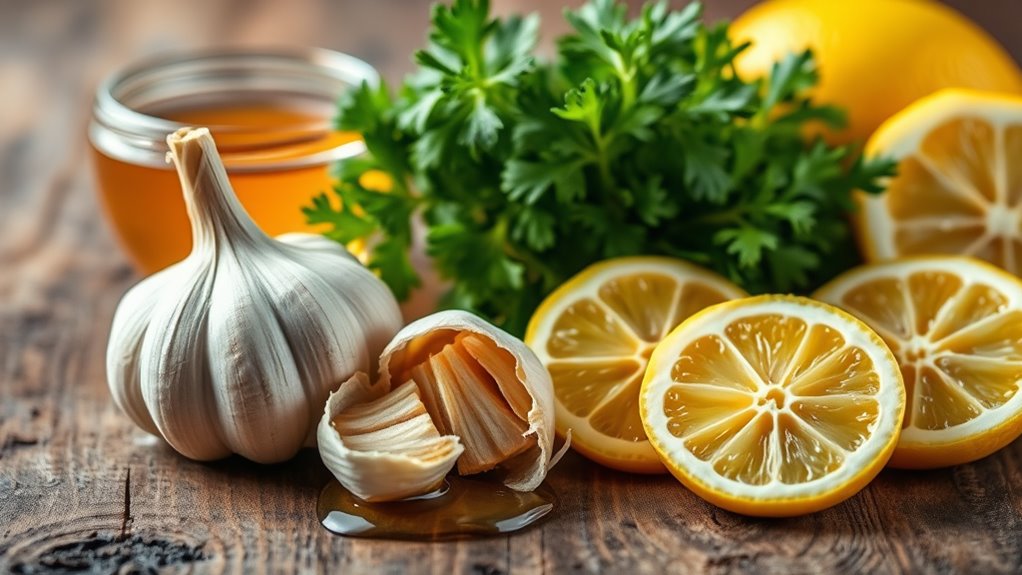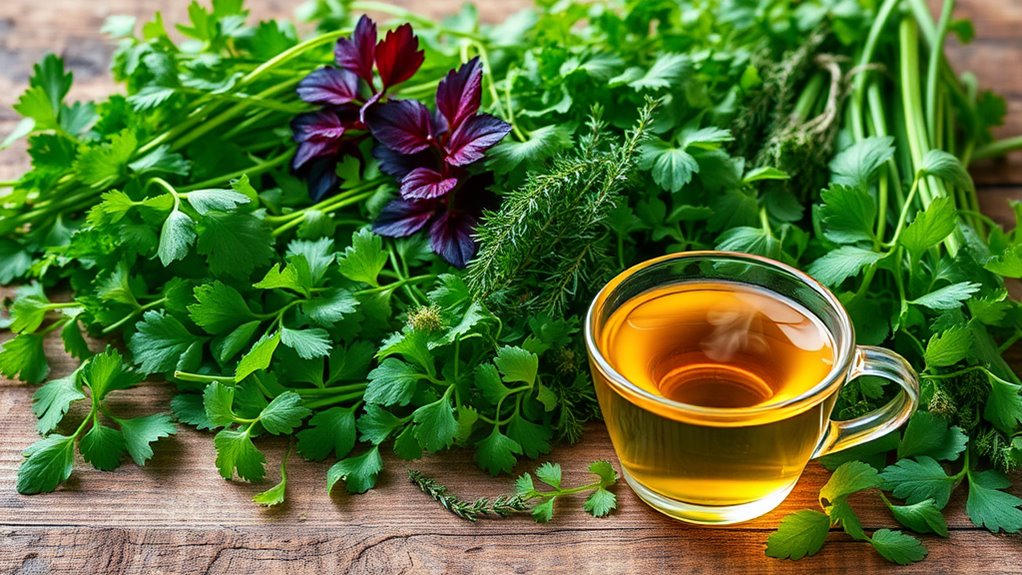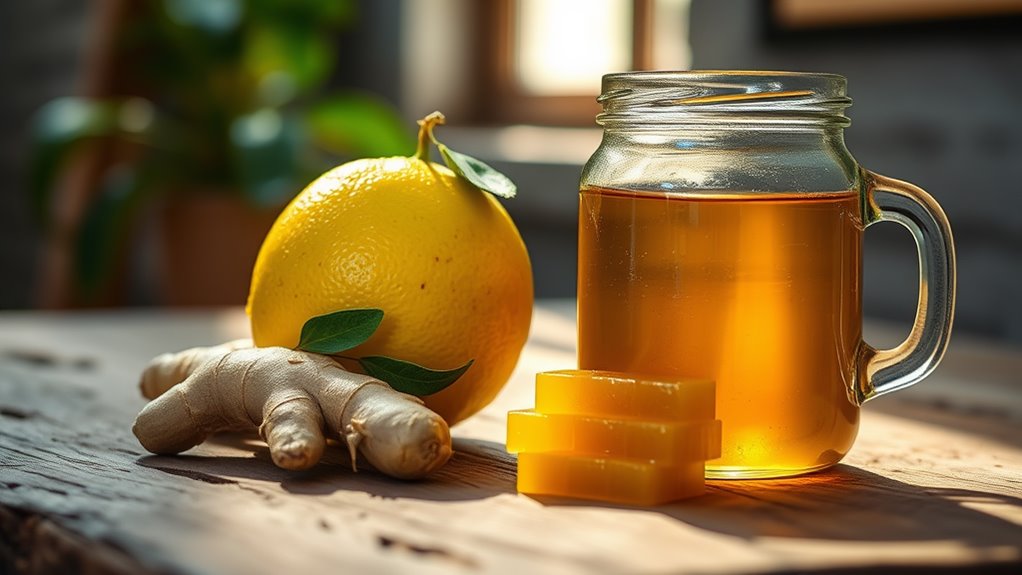Bring Down a Fever Naturally With This Cooling Method
When you’re dealing with a fever, it can feel overwhelming. But there are effective, natural methods to help bring your body temperature down without relying solely on medication. By understanding how to leverage cooling techniques and enhance your body’s natural processes, you can find relief. It’s important to know the right ways to approach this issue, especially when your comfort is at stake. So, what are the best strategies to cool down and support your recovery?
Key Takeaways
- Apply ice packs on pulse points like wrists and neck to cool the body effectively.
- Use a fan to enhance airflow and promote sweat evaporation for immediate relief.
- Create a cross-breeze by opening windows to improve comfort during a fever.
- Drink ginger tea to promote sweating, which aids in natural cooling.
- Utilize skin salves made from aloe vera or calendula for soothing skin relief.
Understanding Fever and Its Causes
What really happens in your body when you develop a fever? Your immune system kicks into high gear, responding to viral causes or bacterial origins.
When pathogens invade, your body raises its temperature to create an inhospitable environment for these intruders.
This increase in heat helps enhance immune cell activity, allowing you to fight off infections more effectively.
While fever can be uncomfortable, it’s a natural defense mechanism.
Understanding these processes can empower you to manage fever more effectively. Additionally, employing natural methods can help safely lower body temperature without compromising the immune response.
The Importance of Staying Hydrated
Staying hydrated is crucial when you’re dealing with a fever, as water plays a vital role in your recovery. Proper hydration helps regulate your body temperature and supports your immune system in fighting off illness. Additionally, adequate fluid intake can help prevent dehydration, which is a common concern during fever episodes.
Water’s Role in Recovery
Hydration plays a crucial role in your recovery from a fever. Staying well-hydrated helps your body fight off infections and replenish lost fluids.
Engaging in Water Yoga can be a gentle way to enhance circulation and promote relaxation, aiding your recovery.
Additionally, incorporating Bath Rituals with soothing temperatures can help you feel more comfortable, easing discomfort while encouraging hydration.
Remember, drinking water or herbal teas not only quench your thirst but also support vital bodily functions.
Prioritizing hydration during this time ensures your body has the resources it needs to heal effectively and efficiently. Don’t underestimate its power!
Hydration and Body Temperature
Water intake directly influences your body temperature regulation, especially when you’re dealing with a fever.
Staying hydrated helps your body efficiently manage heat, so it’s crucial to drink enough fluids.
Environmental impacts, like heat and humidity, can further elevate your body temperature, making hydration even more essential.
Your lifestyle choices, such as diet and activity level, also play a role in how well you maintain your temperature.
Opt for water-rich foods and avoid caffeine or alcohol, which can dehydrate you.
Cooling Techniques for Fever Relief
When dealing with a fever, implementing effective cooling techniques can make a significant difference in how you feel.
Start by using ice packs on pulse points like your wrists, neck, and forehead.
This targeted cooling can help lower your body temperature quickly.
Additionally, consider fan methods to increase air circulation.
Position yourself in front of a fan or create a cross-breeze by opening windows.
This will help evaporate sweat and enhance your comfort.
Remember, these techniques aren’t replacements for medical advice, but they can provide immediate relief while your body fights off the fever.
Using natural fever reducers can also complement these techniques for quicker relief.
Stay cool and hydrated!
Herbal Remedies and Natural Ingredients
How can herbal remedies and natural ingredients support your body in fighting off a fever?
Incorporating skin salves made from soothing ingredients like aloe vera or calendula can help cool your skin and provide relief.
Culinary herbs such as ginger, garlic, and thyme aren’t just flavorful; they possess anti-inflammatory properties that may assist in reducing fever.
Ginger tea, for instance, can promote sweating, which aids in cooling down.
By utilizing these natural remedies, you empower your body to combat illness more effectively, making your recovery smoother and more comfortable. Additionally, some herbal remedies, like anti-inflammatory herbs, can enhance your immune response, further aiding in fever reduction.
Embrace these herbal solutions for a holistic approach to fever management.
The Role of Rest in Recovery
Rest plays a crucial role in your recovery from a fever.
By prioritizing rest, you allow your body to heal and regain strength.
Consider these key benefits of adequate rest:
- Physical Healing: Your body needs energy to fight off illness.
- Emotional Recovery: Rest helps stabilize your mood, reducing anxiety and stress.
- Athletic Rest: If you’re an athlete, taking time off prevents further strain and aids in recovery.
Incorporating these aspects into your recovery plan can significantly enhance your well-being. Additionally, adequate rest can boost your immune system, which is essential for overcoming colds and flu effectively.
When to Seek Medical Attention
When you’re managing a fever, knowing when to call for help is crucial.
If your fever stays high, you experience severe symptoms, or it lasts more than three days, it’s time to seek medical attention. Additionally, if you notice signs of dehydration, such as a dry mouth or decreased urination, it may indicate a need for natural cooling beverages to help lower your body temperature. Don’t hesitate to reach out; your health is the top priority.
Persistent High Fever
Is your fever lingering longer than expected? You might want to consider seeking medical attention if you notice:
- A persistent high fever above 103°F (39.4°C)
- Fever lasting more than three days
- Fever accompanied by severe weakness or dehydration
Don’t let fever myths mislead you; global trends show that some fevers can indicate serious underlying conditions.
Trust your instincts and prioritize your health.
If your fever won’t break or you experience significant discomfort, it’s essential to consult a healthcare professional.
Accompanying Severe Symptoms
While a fever itself can be a natural response to infection, severe symptoms accompanying it should never be ignored.
If you’re experiencing mental fog, joint pain, or extreme fatigue, it’s essential to seek medical attention.
These symptoms can indicate a more serious underlying condition that requires immediate care.
Additionally, if you notice difficulty breathing, chest pain, or persistent vomiting, don’t hesitate to contact a healthcare professional.
Remember, your well-being is paramount, and timely intervention can prevent complications.
Trust your instincts—if something feels off, it’s always better to err on the side of caution.
Duration Exceeds Three Days
If a fever lingers for more than three days, it’s crucial to take it seriously and consider seeking medical attention.
Ignoring a prolonged fever can lead to complications.
- Track your symptoms: Note any changes or new signs.
- Don’t rely on fever myths: Believing that fevers always resolve on their own can be dangerous.
- Consult a healthcare provider: Especially if there’s severe discomfort, dehydration, or persistent high temperatures.
Your health is paramount, and symptom tracking can help you communicate effectively with a medical professional.
Stay vigilant and prioritize your well-being!
Preventive Measures to Avoid Future Fevers
Fever can often signal an underlying issue, but you can take proactive steps to minimize the risk of future episodes.
Start by practicing good hand hygiene; washing your hands regularly helps reduce the spread of germs.
Incorporate immune boosters into your diet, such as fruits, vegetables, and nuts, to strengthen your body’s defenses. Additionally, consider adding natural ingredients known for their immune-boosting properties to your meals.
Staying hydrated and getting enough sleep also play crucial roles in maintaining a healthy immune system.
Regular exercise can further enhance your overall well-being.





